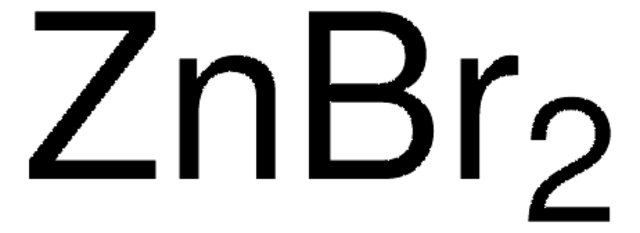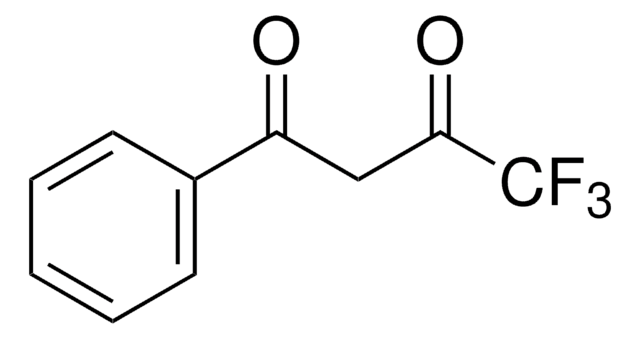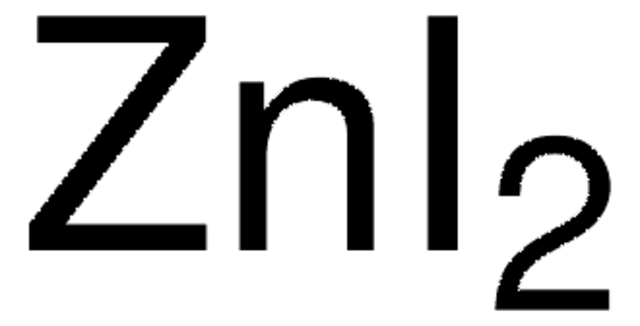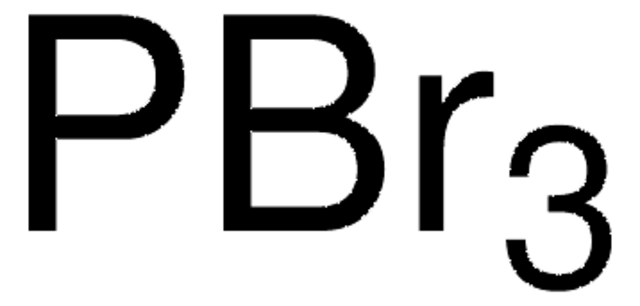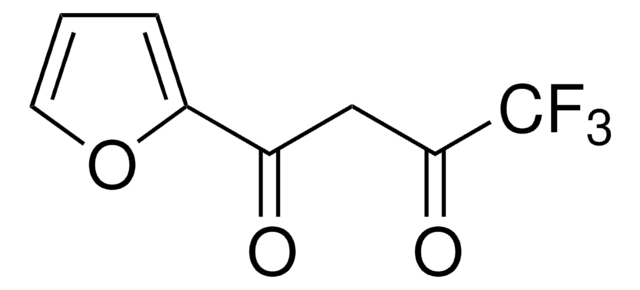230022
Zinc bromide
99.999% trace metals basis
Synonyme(s) :
Zinc dibromide
About This Item
ethanol: very soluble(lit.)
Produits recommandés
Niveau de qualité
Essai
99.999% trace metals basis
Forme
powder and chunks
Pertinence de la réaction
reagent type: catalyst
core: zinc
Impuretés
≤15.0 ppm Trace Metal Analysis
pb
~670 °C/1 atm (lit.)
Pf
394 °C (lit.)
Solubilité
diethyl ether: slightly soluble(lit.)
ethanol: very soluble(lit.)
Chaîne SMILES
Br[Zn]Br
InChI
1S/2BrH.Zn/h2*1H;/q;;+2/p-2
Clé InChI
VNDYJBBGRKZCSX-UHFFFAOYSA-L
Vous recherchez des produits similaires ? Visite Guide de comparaison des produits
Application
It can be used as starting material to prepare poly(ethylene oxide)/ zinc salt systems, which can be used as polymer electrolytes.
Itcan also be used to prepare ZnO nanoparticles.
Mention d'avertissement
Danger
Mentions de danger
Conseils de prudence
Classification des risques
Acute Tox. 4 Oral - Aquatic Chronic 2 - Eye Dam. 1 - Skin Corr. 1B - Skin Sens. 1
Code de la classe de stockage
8A - Combustible corrosive hazardous materials
Classe de danger pour l'eau (WGK)
WGK 3
Point d'éclair (°F)
Not applicable
Point d'éclair (°C)
Not applicable
Équipement de protection individuelle
Eyeshields, Faceshields, Gloves, type P3 (EN 143) respirator cartridges
Faites votre choix parmi les versions les plus récentes :
Déjà en possession de ce produit ?
Retrouvez la documentation relative aux produits que vous avez récemment achetés dans la Bibliothèque de documents.
Les clients ont également consulté
Articles
Colloidal quantum dots (CQDs) are semiconducting crystals of only a few nanometers (ca. 2–12 nm) coated with ligand/surfactant molecules to help prevent agglomeration.
Notre équipe de scientifiques dispose d'une expérience dans tous les secteurs de la recherche, notamment en sciences de la vie, science des matériaux, synthèse chimique, chromatographie, analyse et dans de nombreux autres domaines..
Contacter notre Service technique